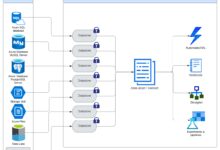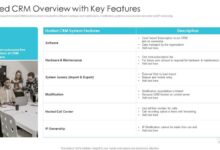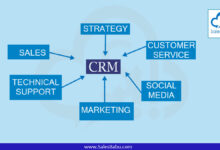Salesforce: 7 Powerful Reasons It Dominates CRM in 2024
If you’re looking to supercharge your customer relationships, Salesforce is the ultimate game-changer. This cloud-based CRM platform isn’t just popular—it’s revolutionary, trusted by over 150,000 companies worldwide.
What Is Salesforce and Why It Matters

Salesforce is more than just a software—it’s a complete ecosystem designed to streamline sales, marketing, customer service, and even artificial intelligence integration. Born in 1999, it pioneered the Software-as-a-Service (SaaS) model, eliminating the need for on-premise installations and making CRM accessible to businesses of all sizes.
The Birth of a CRM Revolution
Salesforce was founded by former Oracle executive Marc Benioff, along with Parker Harris, Frank Dominguez, and Dave Moellenhoff. Their vision? To deliver enterprise applications via the internet, a radical idea at the time. Before Salesforce, CRM systems were clunky, expensive, and required extensive IT infrastructure.
- Launched in 1999 with a bold promise: “The End of Software.”
- Introduced multi-tenant architecture, allowing multiple customers to use the same infrastructure securely.
- First to offer CRM functionality through a web browser, eliminating CD-ROM installations.
This disruptive approach laid the foundation for today’s cloud computing dominance. According to Salesforce’s official website, the company now serves over 150,000 customers globally, including industry giants like Amazon, Toyota, and Unilever.
Core Components of the Salesforce Platform
Salesforce isn’t a single product—it’s a suite of integrated clouds, each tailored to a specific business function. These include Sales Cloud, Service Cloud, Marketing Cloud, Commerce Cloud, and more. Together, they form a unified platform that breaks down data silos and enhances cross-departmental collaboration.
- Sales Cloud: Manages leads, opportunities, and sales pipelines.
- Service Cloud: Powers customer support with case management and AI-driven chatbots.
- Marketing Cloud: Enables personalized email, social, and mobile campaigns.
“Salesforce has redefined what it means to be customer-centric. It’s not just about managing data—it’s about building relationships.” — Marc Benioff, CEO of Salesforce
Salesforce Sales Cloud: Powering Smarter Selling
The Sales Cloud is the beating heart of Salesforce’s CRM offering. It equips sales teams with tools to track every stage of the customer journey—from lead generation to closed deals. With real-time analytics and AI-powered insights, it transforms how sales professionals operate.
Lead and Opportunity Management
One of the most powerful features of Sales Cloud is its ability to automate and streamline lead management. When a potential customer interacts with your website or marketing campaign, Salesforce captures that data and assigns it to the right sales rep.
- Automated lead scoring prioritizes high-value prospects.
- Customizable workflows route leads based on geography, product interest, or company size.
- Opportunity stages reflect the buyer’s journey, providing visibility into deal progress.
For example, a B2B software company can use Sales Cloud to track a lead from a webinar sign-up to a demo request, then to a formal proposal. Each interaction is logged, ensuring no follow-up is missed. According to Salesforce’s Sales Cloud page, companies using this tool see up to a 36% increase in win rates.
Einstein AI: Smarter Forecasting and Insights
Salesforce Einstein is the AI engine embedded across the platform. In Sales Cloud, it provides predictive analytics that help sales managers forecast revenue more accurately and identify at-risk deals.
- Einstein Lead Scoring uses machine learning to rank leads based on historical conversion data.
- Einstein Opportunity Insights detects anomalies, such as stalled deals or sudden changes in communication frequency.
- Einstein Activity Capture automatically logs emails and calendar events into Salesforce, reducing manual data entry.
This AI integration means sales reps spend less time on admin tasks and more time selling. A study by Nucleus Research found that AI-driven CRM tools like Einstein can deliver a return of $8.50 for every dollar spent.
Salesforce Service Cloud: Elevating Customer Support
In today’s experience-driven economy, customer service is a key differentiator. Salesforce Service Cloud empowers support teams to deliver fast, personalized, and consistent service across channels—phone, email, chat, social media, and self-service portals.
Omnichannel Support Made Simple
Customers expect seamless support, regardless of how they reach out. Service Cloud’s omnichannel routing ensures that inquiries are directed to the right agent at the right time, based on skill, availability, and past interactions.
- Unified agent console displays customer history, open cases, and previous communications in one view.
- Automatic case escalation routes complex issues to senior agents.
- Real-time chat and co-browsing allow agents to guide customers through problems visually.
For instance, a telecom company can use Service Cloud to handle a customer complaint that starts on Twitter, continues via email, and ends with a phone call—all within a single case record. This continuity improves resolution times and customer satisfaction.
Knowledge Base and Self-Service Portals
Not every customer wants to talk to an agent. Many prefer to find answers themselves. Service Cloud includes robust knowledge management tools that let companies create searchable FAQs, troubleshooting guides, and video tutorials.
- AI-powered search suggests relevant articles based on the customer’s query.
- Communities allow customers to interact with each other and share solutions.
- Service agents can publish new articles directly from resolved cases, continuously improving the knowledge base.
According to Salesforce’s Service Cloud overview, businesses using self-service portals see a 25% reduction in support tickets and a 30% increase in customer satisfaction.
Salesforce Marketing Cloud: Personalization at Scale
Marketing Cloud is Salesforce’s answer to the growing demand for personalized, data-driven marketing. It enables brands to create targeted campaigns across email, social media, mobile apps, and advertising platforms—all synchronized with customer data from Sales and Service Clouds.
Journey Builder: Orchestrating Customer Experiences
Journey Builder is one of Marketing Cloud’s most powerful tools. It allows marketers to design automated, multi-channel customer journeys based on behavior, preferences, and lifecycle stage.
- A retail brand can trigger a welcome email when someone signs up, followed by a product recommendation based on browsing history.
- If the customer abandons their cart, Journey Builder sends a reminder email with a discount code.
- If they make a purchase, the journey shifts to post-purchase support and loyalty rewards.
This level of automation ensures timely, relevant communication without manual intervention. A report by eMarketer shows that companies using journey mapping tools like Journey Builder achieve 2.5x higher conversion rates.
Data Cloud: Unifying Customer Identities
One of the biggest challenges in marketing is fragmented customer data. Data Cloud (formerly Customer 360) solves this by creating a single, real-time view of each customer across all touchpoints.
- Integrates data from CRM, e-commerce, IoT devices, and third-party sources.
- Uses AI to clean, match, and enrich customer profiles.
- Enables real-time personalization, such as showing personalized product recommendations on a website.
For example, a bank can use Data Cloud to recognize a customer who logs into their mobile app, views loan options, and then visits a branch the next day. The teller can access this complete history and offer tailored advice. As highlighted on Salesforce Marketing Cloud’s site, Data Cloud helps brands deliver 3x more relevant experiences.
Salesforce Commerce Cloud: Building Digital Stores That Convert
In the age of e-commerce, businesses need more than just a website—they need a dynamic, personalized shopping experience. Salesforce Commerce Cloud (formerly Demandware) provides a powerful platform for creating B2B and B2C online stores that integrate seamlessly with CRM and marketing tools.
Headless Commerce and Flexibility
Commerce Cloud supports headless architecture, meaning the front-end (what customers see) is decoupled from the back-end (the business logic). This allows developers to build custom user interfaces using modern frameworks like React or Vue.js while leveraging Salesforce’s robust e-commerce engine.
- Enables faster page loads and smoother user experiences.
- Supports progressive web apps (PWAs) for mobile-like performance on browsers.
- Facilitates omnichannel consistency—same product info, pricing, and inventory across web, mobile, and in-store.
For example, a fashion brand can use headless commerce to launch a sleek, interactive shopping experience on Instagram while syncing inventory and customer data with Salesforce backend systems.
AI-Powered Product Recommendations
Commerce Cloud uses Einstein AI to analyze customer behavior and suggest products that are most likely to convert.
- Displays personalized recommendations on product pages, cart pages, and emails.
- Learns from past purchases, browsing history, and similar customer profiles.
- Optimizes product rankings in search results based on relevance and profitability.
According to Salesforce, brands using AI-driven recommendations see an average 20% increase in average order value. A case study from Salesforce Commerce Cloud shows that a major retailer increased revenue by 35% after implementing personalized product suggestions.
Salesforce Platform and App Development
Beyond its pre-built clouds, Salesforce offers a powerful platform for custom app development. Whether you need a niche tool for field service, healthcare, or financial services, the Salesforce Platform lets you build, integrate, and deploy applications quickly.
Low-Code Development with Lightning
Salesforce Lightning is a suite of tools that enables low-code and no-code development. Business users and admins can create custom pages, workflows, and apps using drag-and-drop interfaces—without writing a single line of code.
- Lightning App Builder allows customization of Salesforce dashboards and layouts.
- Process Builder and Flow automate complex business processes with visual tools.
- Dynamic Forms let users show or hide fields based on conditions, improving data entry efficiency.
This empowers non-developers to innovate quickly. For example, a nonprofit can use Flow to automate donor onboarding, sending welcome emails, updating records, and assigning volunteers—all without IT involvement.
Heroku and MuleSoft: Extending Salesforce’s Reach
Salesforce owns Heroku, a cloud platform for building and deploying custom applications using languages like Ruby, Node.js, and Python. It’s ideal for developers who need more flexibility than the native Salesforce environment allows.
- Heroku integrates seamlessly with Salesforce data via APIs.
- Used by companies like Toyota and MINDBODY to build customer-facing apps.
MuleSoft, acquired by Salesforce in 2017, is an integration platform (iPaaS) that connects Salesforce with other systems like ERP, HR, and legacy databases.
- Reduces integration time from months to days.
- Enables real-time data synchronization across Salesforce, SAP, Workday, and more.
As stated on MuleSoft’s website, organizations using integration platforms see a 30% reduction in operational costs and a 50% faster time-to-market for new services.
Salesforce Trailhead: Learning and Certification
One of Salesforce’s most underrated assets is Trailhead, its free online learning platform. Trailhead offers interactive modules, hands-on challenges, and certifications that help users master Salesforce at every level—from beginner to expert.
Interactive Learning for Everyone
Trailhead uses a gamified approach to learning, awarding badges and points as users complete modules. It covers everything from basic navigation to advanced development with Apex and Visualforce.
- Modules are self-paced and mobile-friendly.
- Covers admin, developer, consultant, and architect roles.
- Includes real-world projects like building a customer service app or automating sales processes.
With over 4 million learners, Trailhead has become a global hub for Salesforce education. It’s especially valuable for career changers and students looking to enter the tech industry.
Certification Paths and Career Growth
Salesforce certifications are highly respected in the industry. They validate skills and can lead to higher salaries and job opportunities.
- Popular certifications include Administrator, Developer, Consultant, and Architect.
- Certified professionals earn up to 30% more than non-certified peers, according to Salesforce’s Trailhead reports.
- Many companies require or prefer certified candidates for Salesforce roles.
For example, a junior IT professional can go from zero Salesforce knowledge to a certified Administrator in 3–6 months by following Trailhead’s guided learning paths.
Salesforce in 2024: Trends and Future Outlook
As we move deeper into the digital age, Salesforce continues to evolve. The company is investing heavily in AI, sustainability, and industry-specific solutions to stay ahead of the curve.
AI and Automation: The Next Frontier
Salesforce is doubling down on AI with Einstein GPT, a generative AI tool that creates personalized content across sales, service, and marketing.
- Generates email drafts, knowledge articles, and marketing copy in seconds.
- Summarizes long customer service transcripts for quick review.
- Creates personalized product descriptions based on customer profiles.
This isn’t just automation—it’s augmentation. AI handles repetitive tasks, freeing humans to focus on strategy and empathy.
Sustainability and Ethical Tech
Salesforce is committed to being a force for good. It has achieved net-zero emissions for its operations and runs the Sustainability Cloud to help other companies track their environmental impact.
- Sustainability Cloud measures carbon emissions, energy use, and waste.
- Used by companies like Unilever and Workday to meet ESG goals.
- Part of Salesforce’s broader 1-1-1 philanthropy model: 1% equity, 1% product, and 1% employee time to charity.
As consumers demand more ethical business practices, Salesforce’s focus on sustainability gives it a competitive edge.
What is Salesforce used for?
Salesforce is used to manage customer relationships across sales, marketing, customer service, commerce, and analytics. It helps businesses automate processes, personalize interactions, and gain insights from customer data—all on a single, integrated platform.
Is Salesforce difficult to learn?
While Salesforce has a learning curve, its user-friendly interface and free Trailhead platform make it accessible to beginners. With consistent practice and certification, most users can become proficient within a few months.
Can Salesforce integrate with other software?
Yes, Salesforce integrates with thousands of apps via AppExchange and APIs. Tools like MuleSoft enable deep, real-time integrations with ERP, HR, marketing, and legacy systems.
What industries use Salesforce?
Salesforce is used across industries including finance, healthcare, retail, manufacturing, education, and nonprofits. It offers industry-specific clouds for financial services, healthcare, and education.
How much does Salesforce cost?
Pricing varies by cloud and features. Sales Cloud starts at $25/user/month for Essentials, while Enterprise and Unlimited tiers offer advanced capabilities at higher prices. Custom quotes are available for large deployments.
Salesforce has redefined the CRM landscape, evolving from a simple sales tool into a comprehensive, AI-powered platform that touches every aspect of customer engagement. From Sales Cloud to Service Cloud, Marketing Cloud to Commerce Cloud, its ecosystem empowers businesses to be more efficient, insightful, and customer-centric. With Trailhead for learning, MuleSoft for integration, and a relentless focus on innovation, Salesforce isn’t just keeping up with the future—it’s shaping it. Whether you’re a startup or a Fortune 500 company, embracing Salesforce means embracing growth, agility, and long-term success.
Recommended for you 👇
Further Reading:



